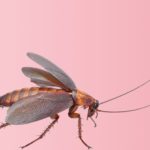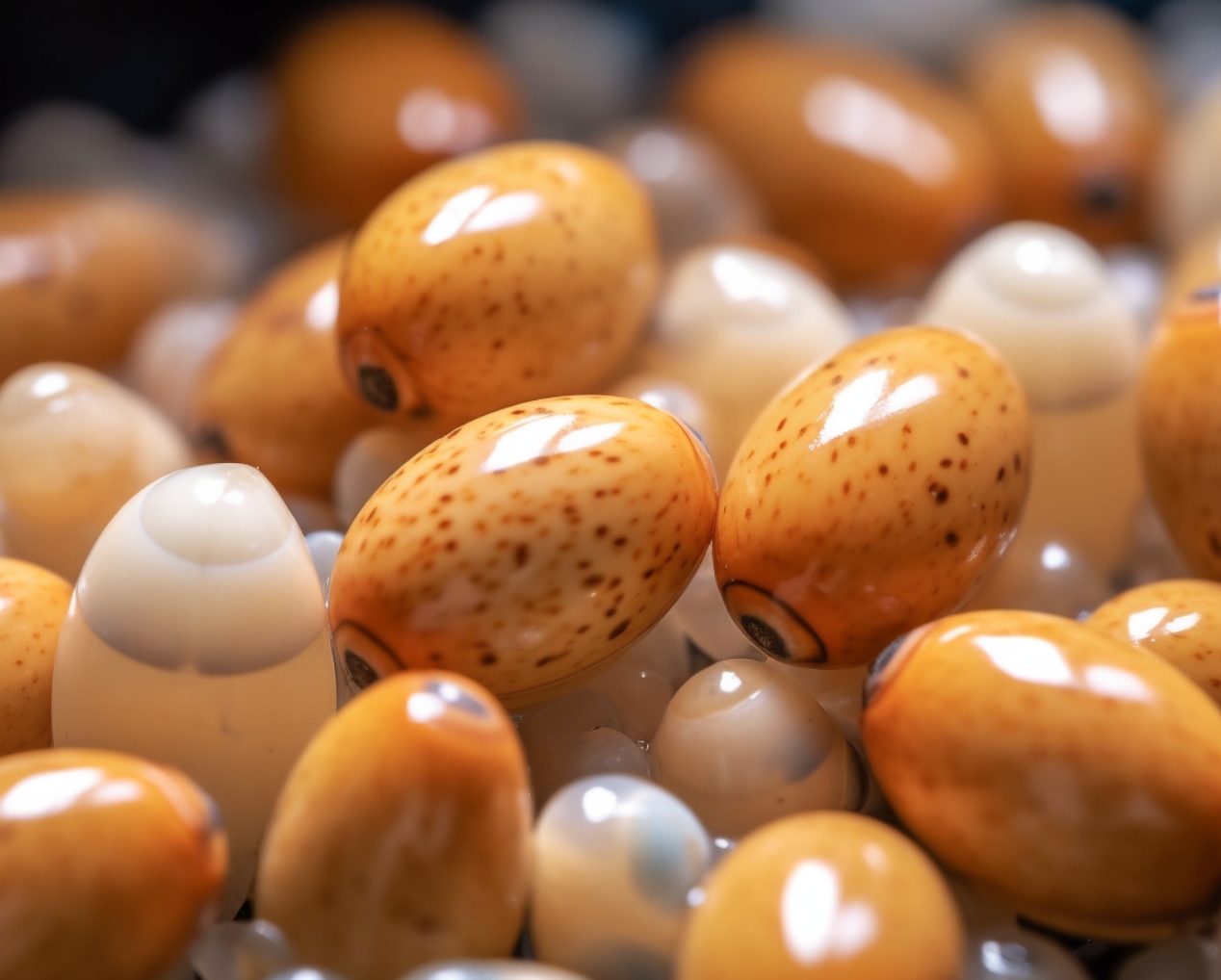You’ve spotted a creepy-crawly in your home, and your first thought is, “Yikes! It’s a cockroach!” But hold on a second – not all bugs that look like cockroaches are actually roaches. In this article, we’ll delve into the fascinating world of insects that resemble our most dreaded household pests, and give you a step-by-step guide to identifying and managing these unwelcome visitors.
The Usual Suspects: Bugs That Look Like Cockroaches
Contents
1. Crickets
Crickets are a common bug that can be mistaken for a cockroach. They have a similar body shape and color, but they are generally smaller and have large hind legs for jumping.
2. Water Bugs
Water bugs, like the giant water bug or water boatman, can sometimes be mistaken for cockroaches. They have a similar oval-shaped body and brown color, but they are typically found near water sources.
3. Beetles
There are many types of beetles that can resemble cockroaches, such as the ground beetle and the Asian cockroach. While some beetles can be beneficial to your garden, others can infest your home and become a nuisance.
4. Palmetto Bugs
Palmetto bugs are actually a type of large, flying cockroach, known as the American cockroach. They are often mistaken for other types of roaches, but their size and ability to fly distinguish them from their smaller, non-flying cousins.
5. Earwigs
Earwigs are another bug that can be mistaken for a cockroach. They have a similar body shape, but they have distinctive pincers at the end of their abdomen, which cockroaches do not have.
How to Tell the Difference: Cockroaches vs. Other Bugs
To tell the difference between a cockroach and another bug, pay attention to these key features:
- Size: Cockroaches are typically larger than most bugs that resemble them. For example, an Australian cockroach can grow up to 1.2 inches in length, while an adult cricket is usually less than an inch long.
- Wings: Most cockroaches have wings, but not all of them can fly. Beetles also have wings but are generally better fliers than cockroaches.
- Color: Cockroaches are usually brown or reddish-brown in color. Other bugs that look like cockroaches can vary in color, from black to green or even metallic hues.
- Antennae: Cockroaches have long, thin antennae, while crickets and beetles have shorter, thicker antennae.
- Habitat: Cockroaches prefer dark, damp places, while crickets prefer dry environments. Beetles can be found in a variety of habitats, depending on the species.
How to Get Rid of Bugs That Look Like Cockroaches
Once you’ve identified the type of bug you’re dealing with, it’s time to take action. Here’s how to get rid of these unwelcome guests:
1. Crickets
To eliminate crickets, try these methods:
- Seal cracks and crevices around your home to prevent entry.
- Keep your home clean and free of food debris.
- Use sticky traps or insecticides to control existing infestations.
- Consider using natural predators, such as spiders or centipedes, to help control cricket populations.
2. Water Bugs
To get rid of water bugs, follow these steps:
- Eliminate standing water around your home, including birdbaths, gutters, and plant saucers.
- Clean up any decaying organic matter, as this can attract water bugs.
- Use insecticides or natural predators, such as dragonflies or fish, to control water bug populations.
3. Beetles
To control beetle infestations, try these tips:
- Store food items in sealed containers to prevent infestations.
- Clean up spills and crumbs promptly to avoid attracting beetles.
- Use insecticides, such as roach spray, or natural remedies like borax for roaches and boric acid and peanut butter bait, to control existing beetle populations.
- Introduce beneficial insects, such as ladybugs, to your garden to help control beetle populations.
4. Palmetto Bugs
To get rid of palmetto bugs, follow these steps:
- Seal any cracks and crevices around your home to prevent entry.
- Keep your home clean and free of food debris.
- Use insecticides, such as Advion Cockroach Gel Bait, or roach bombs to control existing infestations.
- Consider using a professional pest control service for severe infestations.
5. Earwigs
To eliminate earwigs, try these methods:
- Clear away any decaying vegetation or debris around your home.
- Seal any cracks and crevices to prevent entry.
- Use sticky traps, insecticides, or home remedies for roaches to control existing earwig infestations.
- Introduce natural predators, such as birds or toads, to your garden to help control earwig populations.
Prevention: Keep Bugs That Look Like Cockroaches Out of Your Home
To prevent bugs that look like cockroaches from invading your home, follow these general tips:
- Keep your home clean and free of food debris. Regularly vacuum and wipe down surfaces to remove any crumbs or spills that could attract pests.
- Seal any cracks and crevices around your home to prevent entry. This includes doors, windows, and any gaps in the foundation or walls.
- Regularly inspect your home for signs of infestation, such as droppings, shed skins, or damage to food packages.
- Use a dehumidifier to reduce moisture levels in damp areas, such as basements or crawlspaces, as many pests are attracted to moist environments.
In conclusion, while many bugs may look like cockroaches, not all of them are actually roaches. By familiarizing yourself with the different types of insects that resemble cockroaches and learning how to identify them, you can take the appropriate steps to manage and prevent infestations in your home. Remember to keep your living spaces clean, seal any entry points, and use the right insecticides or natural remedies to control the specific type of bug you’re dealing with.
With a little bit of knowledge and some diligence, you can keep these pesky pests at bay and maintain a comfortable, bug-free home. Don’t let the fear of cockroach imposters keep you up at night – now you have the tools and information necessary to tackle any bug that dares to look like a roach in your domain. Happy bug hunting!
FAQs about Bugs That Look Like Cockroaches
Q: Are bugs that look like cockroaches dangerous?
A: While some bugs that resemble cockroaches can be a nuisance, most of them are not dangerous to humans. However, some beetles and earwigs can cause damage to plants, and some water bugs can bite if handled. Proper identification is crucial for determining whether a bug poses a threat to your home or health.
Q: Do bugs that look like cockroaches carry diseases?
A: Unlike cockroaches, most bugs that look like roaches do not carry diseases. Cockroaches are known to carry pathogens due to their habit of living in unsanitary conditions. However, it is still important to maintain a clean home to prevent any potential health risks associated with bugs in general.
Q: Can bugs that look like cockroaches infest my home?
A: Some bugs that resemble cockroaches, such as certain types of beetles, can infest your home if conditions are favorable. However, not all bugs that look like roaches will infest your home. Proper identification and prevention measures can help keep these bugs at bay.
Q: How can I tell if I have a cockroach infestation or a different bug infestation?
A: Look for specific signs associated with cockroach infestations, such as droppings, shed skins, or a musty odor. Additionally, pay attention to the behavior and appearance of the bugs you find in your home. Cockroaches are nocturnal and will usually scatter when exposed to light, while other bugs might not exhibit the same behavior.
Q: What should I do if I’m unsure what type of bug I have in my home?
A: If you’re unsure whether you’re dealing with a cockroach or another type of bug, consider contacting a professional pest control service for identification and treatment recommendations. They have the expertise to properly identify and manage various types of bug infestations.


